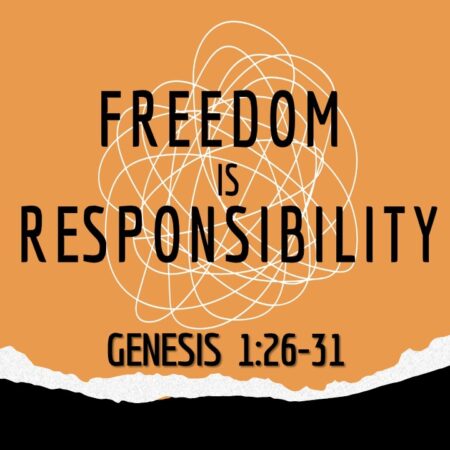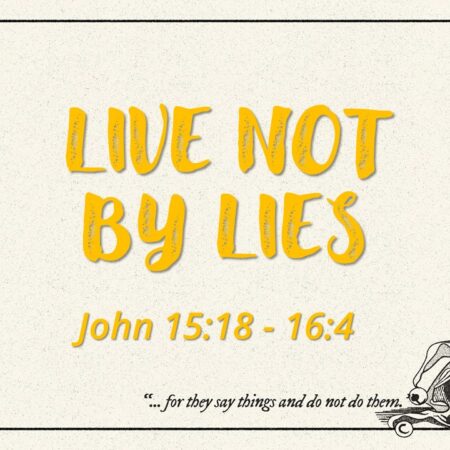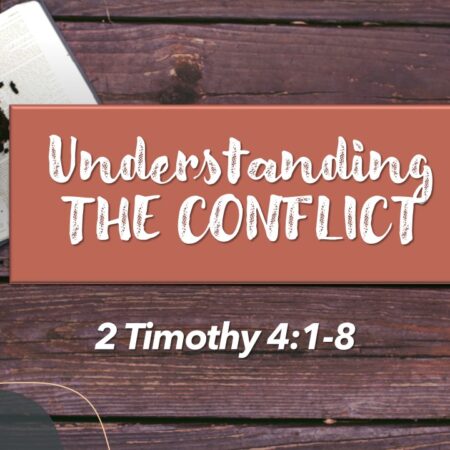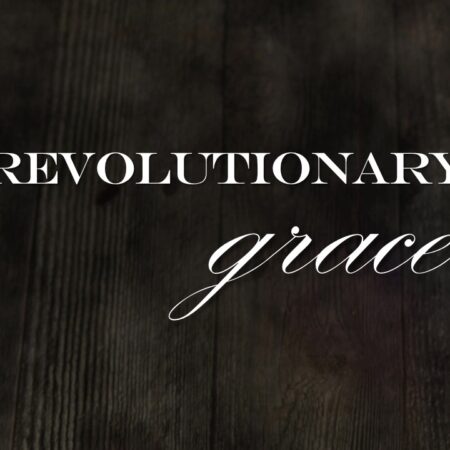In the Epilogue to his “Caesar and Christ (1944), historian Will Durant noted that,
“A great civilization is not conquered from without until it has destroyed itself within. The essential causes of Rome’s decline lay in her people, her morals, her class struggle, her failing trade, her bureaucratic despotism,
her stifling taxes, her consuming wars.”
Lawrence Reed a historian and economist wrote in 2014 an essay titled: The fall of the Republic
I don’t really disagree with Durant’s statement. However, if pressed to describe in one word why the ancient Roman Republic fell, I wouldn’t choose any that Durant mentions here. I would not choose corruption, nor any of the other usual suspects: war, socialism, slavery, the welfare state, envy, civil strife, foreign invasion, erosion of character, taxes, bureaucracy, spending or debt. Those were all important factors, but they were symptomatic rather than causative.
More than anything else, the drawn-out demise of Rome’s 500-year-old Republic must be laid at the doorstep of the most corrosive influence in the affairs of humankind. It’s a mental poison that twists and warps even the best of men and women if they allow it to take root in their souls.
I refer to power—the exercise of control over others. Simply the pursuit of it, whether one ultimately attains it or not, is itself an intoxicant.
Since most people don’t want someone else to control them, one who wishes to control others must sooner or later convince his victims (if he doesn’t kill them first) that it’s good for them to either embrace it or refrain from resisting it. That invariably requires lies and deception and, ultimately, force and violence. The more I observe the ways that power-seekers behave—present company as well as the hordes from history’s dustbin—the more I’m convinced that power is the principal way that pure Evil manifests itself.”
The ESV Study Bible has commentaries on the Roman Empire and the Greco-Roman World at the time of the New Testament.
Under the title: “Religion and Magic” we find this comment:
“Most today think of Roman religion in terms of its pantheon of gods and goddesses, such as Jupiter, Venus, and Mars (or their Greek counterparts Zeus, Aphrodite and Ares). Certainly, this pantheon was central to civic life. Touring an ancient city, one would see dozens of temples (some of immense size) dedicated to such deities. These gods were thought to act as benefactors both to the individual and to the city. Yet, should one neglect these deities, they could become angry and injure the individual or society.”
Hitler’s Monsters: A Supernatural History of the Third Reich”
published 2018 by Eric Kurlander, Professor of History (Author)
“The Nazi fascination with the occult is legendary, yet today it is often dismissed as Himmler’s personal obsession or wildly overstated for its novelty. Preposterous though it was, however, supernatural thinking was inextricable from the Nazi project. The regime enlisted astrology and the paranormal, paganism, Indo-Aryan mythology, witchcraft, miracle weapons, and the lost kingdom of Atlantis in reimagining German politics and society and recasting German science and religion. Even as popular occultism and superstition were intermittently rooted out, suppressed, and outlawed, the Nazis drew upon a wide variety of occult practices and esoteric sciences to gain power, shape propaganda and policy, and pursue their dreams of racial utopia and empire.”
Bestselling author Sidney Kirkpatrick in his book “HITLER’S HOLY RELICS” tells the riveting and never before told true story of how an American college professor hunted down and recovered the most cherished symbols of Hitlers 1000 year Reich before they could become a rallying point in the creation of a Fourth and equally unholy Reich.
“From Paris to Stalingrad, the Nazis systematically plundered all manner of art and antiquities. But the first and most valuable treasures they looted were the Crown Jewels of the Holy Roman Empire.
Anticipating the Allied invasion of Nazi Germany, Reichsführer Heinrich Himmler had ordered a top-secret bunker carved deep into the bedrock beneath Nürnberg castle. Inside the well-guarded chamber was a specially constructed vault that held the plundered treasures Hitler valued the most: the Spear of Destiny (reputed to have been used to pierce Christ’s side while he was on the cross) and the Crown Jewels of the Holy Roman Empire, ancient artifacts steeped in medieval mysticism and coveted by world rulers from Charlemagne to Napoleon. But as Allied bombers rained devastation upon Nürnberg and the U.S. Seventh Army prepared to invade the city Hitler called “the soul of the Nazi Party,” five of the most precious relics, all central to the coronation ceremony of a would-be Holy Roman Emperor, vanished from the vault. Who took them? And why? The mystery remained unsolved for months after the war’s end, until the Supreme Allied Commander, General Dwight D. Eisenhower, ordered Lieutenant Walter Horn, a German-born art historian on leave from U.C. Berkeley, to hunt down the missing treasures.
To accomplish his mission, Horn must revisit the now-rubble-strewn landscape of his youth and delve into the ancient legends and arcane mysticism surrounding the antiquities that Hitler had looted in his quest for world domination. Horn searches for clues in the burnt remains of Himmler’s private castle and follows the trail of neo-Nazi “Teutonic Knights” charged with protecting a vast hidden fortune in plundered gold and other treasure. Along the way, Horn has to confront his own demons: how members of his family and former academic colleagues subverted scholarly research to help legitimize Hitler’s theories of Aryan supremacy and the Master Race. What Horn discovers on his investigative odyssey is so explosive that his final report will remain secret for decades.”
“Hitler’s Holy Relics: A True Story of Nazi Plunder and the Race to Recover the Crown Jewels of the Holy Roman Empire”; Sidney Kirkpatrick, 2011
KEEP YOUR THOUGHTS PURE AND GUARD YOUR MIND AT ALL TIMES. Serving instead of being served is the answer to never LUST FOR POWER.
Freedom IS RESPONSIBILITY
Freedom is a MEANS to live within the truth.
As we have learned last Sunday, Alexander Solzhenitsyn, the Russian philosopher and author who wrote the “GULAG ARCHIPELAGO” and with it exposed the rottenness of Soviet totalitarianism wrote: “The foundation of totalitarianism is an ideology made of lies. The system depends for its existence on a people’s fear of challenging the lies.” Alexander Solzhenitsyn
In his book “The Deeper State” Lt. Col. Robert Maginnis gives us this definition:
“Globalism is a synonym for globalization, the system of global economic interconnection that is embraced by liberal groups like labor unions, climate change alarmists, and the wealthy, self-righteous elite. Many of those same advocates mistakenly claim globalization is a dispassionate concept that describes the associated increasing connectivity throughout the world that makes our lives better. That’s at best A HALF-TRUTH.”
He goes on to say:
“The core of the world’s globalist community is a worldwide network of self-consumed elitists and their mass of naïve supporters – international financiers, the royal landowners and wealthy political figures who seek TO CONTROL EVERYTHING AND EVERYONE ON EARTH.
They use their wealth to exercise CONTROL OVER THE GLOBE’S POWER CENTERS -corporations, the media, education, governments, religion, medicine, and even the military.”
In 1964, then Senator Barry Goldwater published a book titled:
“WITH NO APOLOGIES”. In it he exposed the globalist agenda.
“David Rockefeller’s newest international cabal (The Trilateral Commission) is intended to be the vehicle for multinational consolidation of the commercial and banking interests by seizing CONTROL of the political government of the United States…
The Trilateral Commission represents a skillful, coordinated effort to SEIZE CONTROL and consolidate the four centers of power: political, monetary, intellectual, and ecclesiastical. What the Trilateral Commission intends is to create a worldwide economic power superior to the political governments of the nation states involved. As managers and creators of the system, they will rule the future.”
Well, in 1991 David Rockefeller, the founder of the Trilateral Commission, confirmed what Goldwater published 27 years earlier
“We are grateful to the Washington Post, The New York Times, Time Magazine and other great publications whose directors have attended our meetings and respected their promises of discretion for almost forty years. It would have been impossible for us to develop our plan for the world if we had been subject to the bright lights of publicity during those days.”
The work is now much more sophisticated and prepared to march towards a world government. The supranational sovereignty of an intellectual elite and world bankers is surely preferable to the national auto determination practiced in past centuries.”
Quoting Lt.Col. Robert Maginnis one more time:
“The problem is that most of the public hasn’t a clue about the danger posed by elite globalists, which reminds me of something Adolf Hitler,
the genocidal Nazi dictator, once said about the German masses:
‘HOW FORTUNATE FOR LEADERS THAT MEN DO NOT THINK.’
It’s time the masses awaken to the globalist threat and think about the likely consequences of their agenda.” Lt.Col.Robert Maginnis
Before I read to you her definition of TOTALITARIANISM, let me give you the definition of AUTHORITARIANISM.
AUTHORITARIANISM is what you have when the state monopolizes political control. That is also known as dictatorship – bad as this is, totalitarianism is much worse.
“A totalitarian society is one in which an ideology seeks to displace all prior traditions and institutions, with the goal of BRINGING ALL ASPECT OF SOCIETY UNDER CONTROL OF THAT IDEOLOGY. A totalitarian state is one that aspires to nothing less than defining and controlling reality. TRUTH IS WHATEVER THE RULERS DECIDE IT IS. Wherever totalitarianism has ruled it has begun to destroy the essence of man.” Hannah Arendth “The Origins of Totalitarianism”
Rod Dreher in his book “Live Not By Lies” unmasks those people this way:
“Back in the Soviet era, totalitarianism demanded love for the Party, and compliance with the Party’s demands was enforced by the state. Today, totalitarianism demand allegiance to a set of progressive beliefs, many of which are incompatible with logic – and certainly with Christianity. Compliance is forced less by the state than by elites who form public opinion, and by private corporations that, thanks to technology, control our lives far more than we would like to admit.”
“Soft totalitarianism exploits decadent modern man’s preference for personal pleasure over principle, including political liberties. The publish will support, or at least not oppose, the coming soft totalitarianism, not because it fears the imposition of cruel punishments but because it will be more or less satisfied by hedonistic comforts.”
“Soft totalitarianism makes use of advanced surveillance technology not yet imposed by the state, but rather welcomed by consumers as aids to lifestyle convenience – and in the post pandemic environment, likely needed for public health. It is hard to get worked up over Big Brother when you have already grown accustomed to Bid Data closely monitoring your private life via pass, credit cards, and smart devices, which make life so much easier and more pleasurable.
In Orwell’s fictional dystopia, the state installed “telescreens” in private homes to keep track of individual’s lives. Today we install smart speakers into our homes to increase our sense of well-being.”
“The death of God in the West had given birth to a new civilization devoted to liberating the individual to seek his own pleasures and to managing emergent anxieties. Religious Man, who lived according to belief in transcendent principles that ordered human life around communal purposes, had given way to Psychological Man, who believed that there was no transcendent order and that life’s purpose was to find one’s own way experimentally. Man no longer understood himself to be a PILGRIM on a meaningful journey with others, but as a TOURIST who traveled through life according to his own self-designed itinerary, with personal happiness his ultimate goal.”
“For the first time, humankind was seeking to create a civilization based on the negation of any binding transcendent order.
The Bolsheviks may have been godless, but even they believed that there was a metaphysical order, one that demanded that individuals subordinate their personal desires to a higher cause.” Philip Rieff
Rieff is famous for writing: “Even the church leaders were lying to themselves about the ability of the institutions they led to resist the therapeutic.”
In 2005, the sociologists of religion Christian Smith and Melinda Lunquist Denton coined the phrase: Moralistic Therapeutic Deism
“If true freedom is defined as freedom of choice, as opposed to the classical concept of choosing virtue, then the door is wide open to reforming religion along therapeutic lines centered around subjective experience. This is why so many conservative Christians did not see, and still cannot explain, the ongoing victories of transgenderism in the culture war. The transgender phenomenon, which requires affirming psychology over biological reality, is a logical culmination of a process that started centuries earlier.
Christian resistance on a large scale to the anti-culture has been fruitless, and is likely to be for the foreseeable future. WHY? Because the spirit of the therapeutic has conquered the churches as well – even those populated by Christians who identify as conservative. Relatively few contemporary Christians are prepared to suffer for their faith, because the therapeutic society that has formed them denies the purpose of suffering in the first place, and the idea of bearing pain for the sake of truth seems ridiculous.” Rod Dreher “Live Not By Lies”
In September of this year, Rod Dreher published a book titled “Live not by Lies.”
“Identity politics are beginning to encroach on every aspect of life. Civil liberties are increasingly seen as a threat to “safety”. Progressives marginalize conservative, traditional Christians, and other dissenters. Technology and consumerism hasten the possibility of a corporate surveillance state. And the pandemic, having put millions out of work, leaves our country especially vulnerable to demagogic manipulation”. Rod Dreher
Here is the method of resistance he gleaned from those people who lived through totalitarianism:
• SEE: Acknowledge the reality of the situation.
• JUDGE: Assess reality in the light of what we as Christians know to be true.
• ACT: Take action to protect truth.
“Though lies may conceal everything, though lies may control everything, we should be obstinate about this one small point:
let them be in control but without any help from any of us…
It is the easiest thing for us to do and the most destructive for the lies. Because when people renounce lies, it cuts short their existence.” Aleksandr Solzhenitsyn
Even if, Solzhenitsyn continued, “we do not march into the squares and shout the truth out loud… let us refuse to say what we do not think…let us each make a choice: whether to remain consciously a servant of falsehood…or to shrug off the lies and become an honest man worthy of respect from one’s children and contemporaries.”
Such a person, Solzhenitsyn wrote:
•will not sign, write or print in any way a single phrase which in his opinion distorts the truth;
•will not utter such a phrase neither in private conversation nor in public, neither on his own behalf nor at the prompting of someone else, neither in the role of agitator, teacher, educator, nor as an actor;
•will not depict, foster or broadcast a single idea in which he can see a distortion of the truth, whether it be in painting, sculpture, photography, technical science or music;
•will not cite out of context, either orally or in writing, a single quotation to please someone, to feather his own nest, to achieve success in his work, if he does not completely share the idea which is quoted, or if it does not accurately reflect the matter at issue;
•will not allow himself to be compelled to attend demonstrations and meetings if they are contrary to his desire;
•will immediately walk out of a meeting, session, lecture, performance or film if he hears a speaker tell lies, or purvey ideological nonsense or shameless propaganda;
•will not subscribe to or buy a newspaper or magazine in which information is distorted and primary facts are concealed.
While these are not “all possible and necessary ways of avoiding lies,” wrote Solzhenitsyn, “whoever begins to cleanse himself will easily apply the cleansing pattern to other cases.” And then he warns,
“It will not be the same for everybody at first. Some will lose their jobs. But there are no loopholes… Either truth or falsehood: towards spiritual independence or towards spiritual servitude. If we are too frightened, then we should stop complaining that we are being suffocated. We are doing this to ourselves …”
Paul Craig Roberts, an American economist, and a professor of economics at several U.S. universities wrote in a recent article:
“The question each of us needs to ask ourselves, and one another, is why do we get so much misinformation about Covid from public health authorities, political authorities, and press prostitutes?
We get a lot of misinformation from health practitioners, because they get the bogus information from health authorities and from researchers ASSOCIATED WITH BIG PHARMA.
Take the issue of masks.
If the masks people are wearing protected against bacteria, viruses, and other pathogens, there would be no point in N95 and higher rated masks. Medical authorities know this, so why are people told, indeed forced, to wear ineffectual masks?
Public health authorities know that the Covid death rate is greatly exaggerated. In the USA, only 9,000 were due to Covid alone.
So why do public health authorities withhold this information from political authorities and the public, and why do reporters not ferret it out? The information exists. It just isn’t reported.
Covid is being used to serve many interests. Among them, Covid is being used to complete the universal Police State by digitizing money. Once electronic money takes the place of currency, checks, and coins, your financial privacy and your control over your money and wealth will disappear.
Are Americans capable of learning? How many lies do they have to be told before they begin to wonder?” Paul Craig Roberts
Chuck Swindoll in his commentary on Mark writes:
“Luke mentions Mark several times in Acts. A budding Jerusalem church meets in his mother’s home.
He starts the first missionary journey with Paul and Barnabas but goes home early. He later travels with Barnabas to Cyprus for more mission work. Then he ends up becoming significant in the life of Paul and is one of the last people the apostle mentions in his final letter to Timothy.
However, Mark’s most significant personal connection was the one he had with Peter, who was likely Mark’s source for the material in his Gospel. Mark’s mother’s house was a regular enough stop for Peter that one of the servants recognized him by his voice alone.
It also appears that Mark may have been present at Gethsemane, a young man watching the proceedings from a safe distance (Mark 14:51-52).
The evidence for this leads some scholars to believe that the Last Supper took place in Mark’s home.”
“Satan presumed power and ownership of something that, ultimately, was not his but God’s. The messaging behind Jesus’ answer is clear: Yahweh will TAKE THE NATIONS back by HIS OWN MEANS and in HIS OWN TIME. He does not need them to be given away in a bargain.
Jesus was loyal to his Father. Since reclaiming the nations was connected with salvation and redemption for the effects of the fall in Eden, accepting Satan’s offer would have undermined the necessity of the atonement of the cross.” Dr. Michael Heiser “The Unseen Realm”
In his newest book titled: “COLLISION COURSE” LTC Robert Maginnis writes:
“You cannot understand the anti-Christian movement today without first knowing about the enemy and the particulars of his strategy. The problem for many is that although the anti-Christian war may manifest itself in the visible domain, most of the real fight against Christians is waged in the invisible realm, which makes this such a hard fight to understand.
Yes, the battle Christians face today is a spiritual one, where fallen angels rule. Jesus wants us to understand that this fight is not one of just the physical realm, but o the spiritual, which REQUIRES FAITH. And, of course, as a result, one must be spiritually discerning to even “SEE” the overwhelming evidence of the ongoing battles.” LTC Robert Maginnis
Of course, Robert Maginnis has read and studied the old Chinese compilation of thousands of years of war experiences called
“SUN TZU, THE ART OF WAR”
“If you know the enemy and know yourself, you need not fear the result of a handful battles. If you know yourself but not the enemy, for every victory gained you will also suffer a defeat. If you know neither the enemy nor yourself, you will succumb in every battle.”
Dr. Michael Heiser
«Caesarea Philippi is adjacent to the Pharpar River. Noting this geography, we can see exactly where Jesus was when he uttered the famous words about “this rock” and the “gates of hell” to Peter.
Caesarea Philippi was located in the northern part of the Old Testament region of Bashan, the “place of the serpent” at the foot of Mount Hermon.
…This site was famous in the ancient world as a center of the worship of Pan and for a temple to the high god Zeus, considered in Jesus’ day to be incarnate in Augustus Caesar.
As one authority notes:
“More than twenty temples have been surveyed on Mt. Hermon and its environs. This is an unprecedented number in comparison with other regions of Phoenician coast. They appear to be the ancient cult sites of the Mt. Hermon population and represent the Canaanite/Phoenician concept of open-air cult centers dedicated, evidently, to the celestial gods.”
The reference in the quotation to ‘celestial gods’ takes our minds back to the “host of heaven” the sons of God who were put in authority over the nations at Babel (Deuteronomy 32:8-9) who were not to be worshiped by Israelites.”
Michael Heiser then summarized the entire quotation with these words:
“The “Rock” refers to the mountain LOCATION where Jesus makes the statement. When viewed from this perspective, Peter confesses Jesus as the Christ, the Son of the living God, at “this Rock” (Mount Hermon). Why? This place was considered the “gates of hell” the gateway to the realm of the dead, in Old Testament times.
“THE STARS OF GOD” are probably symbolic of angels or Elohim
(spiritual beings of the Divine Council over which Yahweh presides)
“MOUNT OF THE CONGREGATION” refers to meeting place of spiritual rulers around God’s throne.
“THE HEIGHTS OF THE CLOUDS” refers to God’s spiritual magnificence, the Shekinah glory.
Dr. Michael Heiser in his book “Supernatural” writes:
“He got a rude awakening. Since the Serpent’s deception led to Adam and Eve’s sin, he was expelled from God’s home and banished to earth – the place where death reigns, where life is not everlasting.
He became lord of the dead, which meant that the great enemy now had claim over all humans since the events in Eden meant the loss of earthly immortality. Humanity would now need to be redeemed to have eternal life with God in a new Eden.”
“The fallout was a series of curses. The curse upon the Serpent included a bit of prophecy. God said Eve’s offspring and that of the Serpent would be at odds. “Then Yahweh God said to the serpent……I will put hostility between you and between the women, and between your offspring and between her offspring” (Genesis 3:14-15 LEB).
Who are Eve’s offspring? Humanity. And who are the Serpent’s offspring? Well, that’s more abstract. The apostle John gives us examples – like the Jewish leaders who hated Jesus. “You are of your father the devil.” Jesus told them (John 8:44). Jesus called his betrayer, Judas, a devil (John 6:70). The serpent’s offspring is anyone who stands against God’s plan, just as he did”.
Carl Teichrib in his book “Game of Gods” writes:
“Humanity has three great desires:
• TO BE AS GOD
• TO BE MASTERS OF MEANING AND DESTINY
• TO BUILD HEAVEN ON EARTH”
This is nothing new: In 1891, Ernest Renan published the book titled: “The Future of Science”
“Science is a religion, science alone will henceforth make the creeds, science alone can solve for men the eternal problems, the solution of which his nature imperatively demands.”
Simon Schama published the book “Citizens: A Chronicle of the French Revolution”
“Christianity, “that infamous thing,” was to vanish in revolutionary fervor. Politicized Christendom would be overthrown by the enlightened masses who, armed with reason guided by passion, were themselves led by men of conviction. Churches were vandalized, mounds of hymn books burned, and “ceremonies of mockery” witnessed priests denouncing their faith. Even the Gregorian calendar was dissolved, with its even-day week replaced by a ten-day cycle dedicated to the veneration of nature. And as each month was structured with an even thirty days, the year would end with an extra five-day block set aside for humanist festivals.”
On November 10, 1793, a Festival of Liberty and Reason was held in the “liberated” Cathedral of Notre Dame. Yale Professor Franklin Baumer in his book “Religion and the Rise of Scepticism”, describes what happened:
“As the Spectators entered the cathedral, they saw, some doubtless with astonishment, the insignia of Christianity covered up and their place taken by the symbols of a strange new religion.
Rising up in the nave was an improvised mountain, at the top of which perched a small Greek temple dedicated “TO PHILOSOPHY” and adorned on both sides by the busts of philosophers.
Halfway down the side of the mountain a torch of TRUTH burned before an altar of REASON. Then ensued a bizarre ceremony which culminated in the emergence from the temple of a beautiful women, an actress of the Paris Opera, dressed in red, with, and blue garments, who personified LIBERTY.
The spectators proceeded to render homage to LIBERTY by stretching out their arms to hear and singing a hymn…….”COME, HOLY LIBERTY, INHABIT THIS TEMPLE, BECOME THE GODDESS OF THE FRENCH PEOPLE.”
Carl Teichrib observes:
“Modernity is an umbrella label for an epoch that witnessed a number of movements and ideas expressing a similar outcome – the humanist progression of society, wherein authentic knowledge and meaning are discovered by NATURALISTIC determination and no Christian revelation. In general, Modernity, often used interchangeably with MODERNISM, upheld humanistic rationalism as the arbitrator of truth. Reason, therefore, proclaimed the goodness of Man over the Christian teaching of original sin, celebrated individual autonomy without moral guilt, worked through industries to harness the beast of nature, and looked to naturalism social guidance. Man became the center of the universe.”
In 1918 Benjamin Kidd, a British social theorist, published his book titled: “The Science of Power”
“Once effectively imposed, this idealism (humans are molded by the social pressure) becomes the expression of the living soul of a people. Its influence cannot be estimated. It subordinates everything. It becomes Power incarnate.
The great secret of the coming age of the world is that civilization rests not on Reason but on Emotion.
It is clearly in evidence that the science of creating and transmitting public opinion under the influence of collective emotion is about to become the principle science of civilization to the mastery of which all governments and all powerful interests will in the future address themselves with every resource at their command.”
In his book “The Beginning – Genesis” Les Woodson writes:
“If man were to share the Creator’s likeness, he must be allowed the use of his will. Where there is no choice, will is not only superfluous but nonexistent. Only in the midst of creative tension which provides at least one option can man be other than a non-choosing beast. The continual conflict made possible by the presence of a choice between two alternatives is an essential ingredient in RESPONSIBLE LIVING.”
Carl Teichrib in his book “Game of Gods” describes him:
“The one before Eve is shrewd and deliberate, showing an exceptional understanding of the human propensity to rationalize. The serpentine-dragon imagery is a powerful expression of his very potent nature. In the Garden he comes to dialogue, to question and test, and to masterfully engage in the salesmanship of self-justification.”
One more quote from Carl Teichrib’s book:
“THE BENEFITS OF PARTAKING APPEARED TO SURPASS THE COSTS: Life would go on, wisdom was to be granted, and the human status would be elevated. This “knowledge”, allowing one to apparently become as Yahweh Himself, would achieve A GREATER GOOD.
Enlightenment was before them. Following the angelic advice, they engaged in the act of taking and eating, the first TECHNIQUE of human-proclaimed self-divinity.”
In so doing, they discovered the tempter had wiled them with a HALF-TRUTH. Immortality vanished and the idea of becoming “as God” proved illusionary. Of course, the truth-part was we “experientially and spiritually” entered the realm of the “knowledge of good and evil”. We had now tasted its capability, but as the Garden incident demonstrated and human history shows, we were personally and collectively unable to control its capacity.
IT CONTROLS US.”
Dr. Michael Heiser in his book “The Unseen Realm” answers that question:
“God is not evil, there is no biblical reason to argue that God predestined the fall, though he foreknew it. There is no biblical reason to assert that God predestined all the evil events throughout human history simply because he foreknew them….
God does not need evil as a means to accomplish anything.
God foreknew the fall. That foreknowledge did not propel the event. God also foreknew a solution to the fall that he himself would guarantee…
Evil does not flow from a first domino that God himself toppled. Rather, evil is the perversion of God’s good gift of free will. It arises from the choices made by imperfect imagers, not from God’s prompting or predestination. God does not need evil, but he has the power to take the evil that flows from free-will decisions – human or otherwise – and use it to produce good and his glory through the obedience of his loyal imagers, who are his hands and feet on the ground NOW.”
The fact and the truth are amazingly simple: The responsibility to choose how we act and react is on us. It also means that what we choose to do is an important part of how things will turn out.
WHAT WE DO MATTERS; PERIOD.
The Swiss Theologian Emil Brunner in his book “Man and Creation” wrote:
“Man is, and remains, responsible, whatever his personal attitude to his Creator may be. He may deny his responsibility, and he may misuse his freedom, but he cannot get rid of his responsibility. Responsibility is part of the unchangeable structure of man’s being. That is; the actual existence of man – of every man, not only the man who believes in Christ – consists in the positive fact that he has been made to respond – TO GOD.”
Occult historian Richard Cavendish writes the following regarding the BLACK ARTS.
“The driving force behind black magic is hunger for power. Its ultimate aim was stated, appropriately enough, by the serpent in the Garden of Eden.
“Ye shall not surely die; for God doth know that in the day ye eat thereof, then your eyes shall be opened and ye shall be as gods, knowing good and evil.’ In occultism the serpent is a symbol of wisdom, and for centuries magicians have devoted themselves to the search for the forbidden fruit which would bring fulfillment of the serpents promise. Carried to its furthest extreme….to make himself a god.”
In 1988 Mark Braham published the book titled: “New Ideas in Environmental Education” which was used as the resource book by the INTERNATIONAL UNION FOR CONSERVATION OF NATURE AND NATURAL RESOURCES/ COMISSION OF THE EUROPEAN COMMUNTIES.
“The source of our planetary problems lies at that point in evolution at which instinct was transformed to intention through the agency of human life. Like so many events, it is recalled in myth and retold down the ages in the legend of the Garden of Eden.
Traditionally, the Serpent is the symbol of Wisdom, and God’s messenger on Earth. Hence, the Serpent symbolizes consciousness, a point well understood by yogis and those practitioners who know somewhat of kundalini, the ‘serpent power’, that, rising, through the hierarchy of chakras or centers of consciousness, as they are understood to be in Hindu and Buddhist thought, enables the initiate to acquire successively higher states of awareness.”
“The Serpent, as the principle of consciousness, fecundated Eve, the Earth Mother, who in turn, gave is to a new Adam, a new type of Man…
By eating from the Tree of Knowledge of Good and Evil, Adam broke the bounds of instinct and entered the realm of mind, with its potential for reflection and choice. Our time is one that is marked by a spiritual quest. Although there has been a loss of faith in traditional religious practices, and little satisfaction in the secular of the past decades, there is a widespread search for meaning that may include, but cannot be satisfied by, ordinary rationality.”
Stanley Ellison in his book “Three Worlds in Conflict” writes:
“Back to the future is no longer an oxymoron; it’s a fact of life. It’s where we live. We all have a bit of the prophet in us as tomorrow keeps crowding in on our agendas.
History is passe and we often neglect its lessons. Our focus is more on the ecstatic hype and hope of tomorrow. This game of trying to beat the odds of the future is one we all play, and for any entrepreneur bent on getting a “leg up” on the competition, it is almost essential. In business, medicine, sports and entertainment, success very often depends on one’s ability to outguess the future. Like it or not, tomorrow with its fears occupies much of our thinking today.”
Michael Horton in his book “Christless Christianity” writes:
“What would things look like if Satan really took control of a city? Over a half century ago, Presbyterian minister Donald Grey Barnhouse offered his own scenario in his weekly sermon that was also broadcast nationwide on CBS radio. Barnhouse speculated that if Satan took over Philadelphia, all the bars would be closed, pornography banished, and pristine streets would be filled with tidy pedestrians who smiled at each other. There would be no swearing. The children would say: “Yes, sir” and “No, ma’am”, and the churches would be full every Sunday………WHERE CHRIST IS NOT PREACHED.”
Robert Schuller’s book: SELF-ESTEEM – THE NEW REFORMATION
“A Church can afford to think in a God’ centered fashion, but a mission must put humans at the center.
It was appropriate for Calvin and Luther to think theocentrically, but now the scales must tip the other way toward a human needs approach. In fact, classical theology has erred in its insistence that theology be God-centered, not man-centered.
Sin is defined as any act of thought that robs myself or another human being of his or her self-esteem….
And what is hell? It is the loss of pride that naturally follows separation from God – the ultimate and unfailing source of our soul’s sense of self-respect.
A person is in hell when he has lost his self-esteem. The cross sanctifies the ego trip.”
One more quote from Stanley Ellisen’s book: “Three Worlds in Conflict”
“Contrary to many naïve notions, the devil is not a green monster with a pitchfork. He is often a do-gooder. His goal in life is not to produce gangsters and drunkards, but to counterfeit the works of God. This has been his ambition ever since he went into business for himself, saying I his preamble: “I will make myself like the Most High” (Isaiah 14:14). The effect of this ply is that he more closely imitates God’s models in his people, the less likely they are to be inclined to seek God or pursue His will. He is a master imitator of God.
Why then does God allow this counterfeit operation to continue? A part of the answer is to intensify man’s spiritual choice and remove it from the arena of mere morality to aesthetics. False religions often have strict morals and beautiful rituals that don’t necessarily make them authentic. TRUE FAITH RESPONDS TO GOD’S WORD, not to attractions of religious niceties. The net effect is that Satan’s kingdom serves as a giant magnet to attract the superficial.”
Ephesians 2:1-10 Genesis 3 Genesis 6 Genesis 11 Genesis 12 Jeremiah 1:4-5 Jeremiah 29:11 Acts 17:22-31
Carmen Joy Imes is an associate professor of Old Testament. In her dissertation titled: Bearing YHWH’s Name at Sinai: A Reexamination of the Name Command of the Decalogue” she writes:
”bearing the name of Yahweh is comparable in meaning to the High Priest bearing the names of the tribes of Israel on his breastplate and bearing the name of Yahweh on his forehead. He represents – in both directions – those whose name he bears. Similarly, those who bore the name of Yahweh, like those who bear the name of Christ, represented that name before a watching world. Israel was called to live in the midst of the nations as the people who bore the name of Yahweh and made Yahweh “visible” in the world by walking in his ways and reflecting his character. To bear the name of the Lord was not merely an inestimable privilege and blessing but a challenging ethical and missional responsibility.”
50 years ago, Os Guiness wrote a book titled: “The Dust of Death” with the subtitle: “The sixties counterculture and how it changed America forever.” He republished the book again 2018.
“Western civilization is in decline, and its lead society, the American Republic, is as deeply divided as at any time since just before the Civil War. But why? Is it simply a clash between the “coastals” (New York and California) and the “heartlanders” (the Midwest and the South), or between the “nationalists and populists” (President Trump’s “forgotten people”) and the “globalists” (of the George Soros-like Western elites)?
There are multiple causes of the deep and bitter polarization, but the deepest of all has been almost completely overlooked, and the sixties provided a massive thrust forward in this development.
The ultimate source of the current divisions in America is between those who understand the Republic, and above all freedom, from the perspective of the American Revolution and those who understand the Republic and freedom from the perspective of the French Revolution and its heirs and their ideas.
Stop to reflect on ideas such us “progressivism,” “postmodernism,” “political correctness,” “identity and tribal politics”, “multiculturalism”, “social constructionism,” the “sexual revolution,” the recent rage for socialism, or the leftward drift of the Democratic party and many in the media.
It quickly becomes clear that these ideas have little or nothing to do with 1776 and the American Revolution and its views of freedom. Rather, they are rooted in ideas that come directly or indirectly from 1789 and the French Revolution, and behind it the French Enlightenment and its later heirs such as Karl Marx, Friedrich Nietzsche, Antonio Gramsci, Wilhelm Reich, Herbert Marcuse, Saul Alinsky and Michel Foucault.
Hence the significance of the 1960s and its expression of the “revolutionary faith” that has flowed down from the French Enlightenment and the French Revolution.
The “seismic sixties” was the decade when the radical ideas first broke through into mainstream American thinking and life. Even more importantly, the sixties were the years when many of the seeds of today’s most radical ideas were sown, only to flower more recently in their most destructive forms.”
Antonia Gramsci is such a person we never hear of. He was sitting in jail under Mussolini in the 1920 when he formulated the revolutionary vision into what is known as CULTURAL MARXISM. In his PRISON NOTEBOOKS he argued that
“the timeline should be slow and incremental rather than sudden. It’s goal must be to gain dominance in the “ruling class” through penetrating the “gatekeepers” and the “switch points” in a society – first “demoralizing” the previous leaders of the ruling class, and then slowly replacing them with new revolutionary ideas and narratives. If revolutionaries were to gain “mastery of human consciousness” in this way, they would not need concentration camps and mass murder. Even the KGB would be less important than the winning of the cultural gatekeepers.”
He called this process “The Long March”.
Os Guinness comments on this
“Fifty years later, it is clear that the long march through the institutions has succeeded beyond the wildest dreams of the late sixties. In much of the worlds of colleges and universities, the press and the media, and Hollywood and entertainment, many of the prominent ideas and attitudes reflect the thinking of 1789 and its heirs and not the ideals of 1776. America has been bewitched. The great American Republic is in the process and switching revolutions from the American to the French.
…the sixties sowed the dragon’s seeds that are producing the bitter harvest being reaped today. The roots of those ideas go back far earlier than the sixties, but it was the sixties that gave them the thrust that made them the destructive force they are today.”
Adam Sedgwick, Darwin’s former mentor in natural science at the University of Cambridge, wrote a letter to Darwin after reading ‘the origin of Species’.
In it Sedgwick wrote:
“Passages in your book…greatly shocked my moral taste. There is a moral or metaphysical part of nature as well as a physical. A man who denies this is deep in the mire of folly.
Tis the crown and glory of organic science that it does, through final cause, link material to moral. You have ignored this link.”
Robby Kossmann, a German zoologist who later became a medical professor, wrote an essay in 1880, titled:
“The Importance of the Life of an Individual in the Darwinian World View”.
He declared: “The Darwinian world view must look upon the present sentimental conception of the value of the life of a human individual as an overestimate completely hindering the progress of humanity. The human state also, like every animal community of individuals, must reach an even higher level of perfection, if the possibility exists in it, THROUGH THE DESTRUCTION OF THE LESS WELL ENDOWED INDIVIDUAL, for the more excellent endowed to win space for the expansion of its progeny…..
The state only has an interest in preserving the more excellent life at the expense of the less excellent.”
Richard Weikart in his book “From Darwin to Hitler” subtitled:
“Evolutionary Ethics, Eugenics, and Racism in Germany” wrote:
So, what are the connection between Darwinism and Hitler and are they really all that significant?
First, Darwinism undermined traditional morality and the value of human life. Then, evolutionary progress became the new moral imperative. This aided the advance of eugenics, which was overtly founded on Darwinian principles. Some eugenicists began advocating euthanasia and infanticide for the disabled. On a parallel track, some prominent Darwinists argued that human racial competition and war is part of the Darwinian struggle for existence. Hitler imbibed these social Darwinists ideas, blended in virulent anti-Semitism, and – there you have it: HOLOCAUST.
Madison Grant, president of the New York Zoological Society, in 1916 published a book titled: “The Passing of the Great Race”
“Mistaken regard for what is believed to be divine laws and a sentimental belief in the sanctity of human life tend to prevent both the elimination of defective infants and the sterilization of such adults as are themselves of no value to the community. The laws of nature require the obliteration of the unfit, and human life is valuable only when it is of use to the community or race.
Richard Weikhart summarizes the devastating impact Darwinism has in Europe and in America.
“Leading Darwinists agreed that natural processes could account for all aspects of human society and behavior, including ethics. They denied any possibility of divine intervention, heaped scorn on mind-body dualism, and rejected free will in favor of complete determinism. For them, every feature of the cosmos – including the human mind, society, and morality – could be explained by natural cause and effect. Everything was thus subject to the ineluctable laws of nature. As a corollary to this, science became the arbiter of all truth. Not even ethics or morality could escape the judgments and pronouncements of science.”
1 Corinthians 15:45-49
Thus it is written, “The first Adam became a living being”; the last Adam became a life-giving spirit.
But it is not the spiritual that is first but the natural, and then the spiritual. The first man was from the earth, a man of dust; the second man is from heaven.
As was the man of dust, so also are those who are of the dust, and as is the man of heaven, so also are those who are of heaven.
Just as we have borne the image of the man of dust, we shall also bear the image of the man of heaven.
Matthew 10:28-33
“And do not fear those who kill the body but cannot kill the soul. Rather fear him who can destroy both soul and body in hell. Are not two sparrows sold for a penny? And not one of them will fall to the ground apart from your Father. But even the hairs of your head are all numbered. Fear not, therefore; you are of more value than many sparrows. So everyone who acknowledges me before men, I also will acknowledge before my Father who is in heaven, but whoever denies me before men, I also will deny before my Father who is in heaven.”










